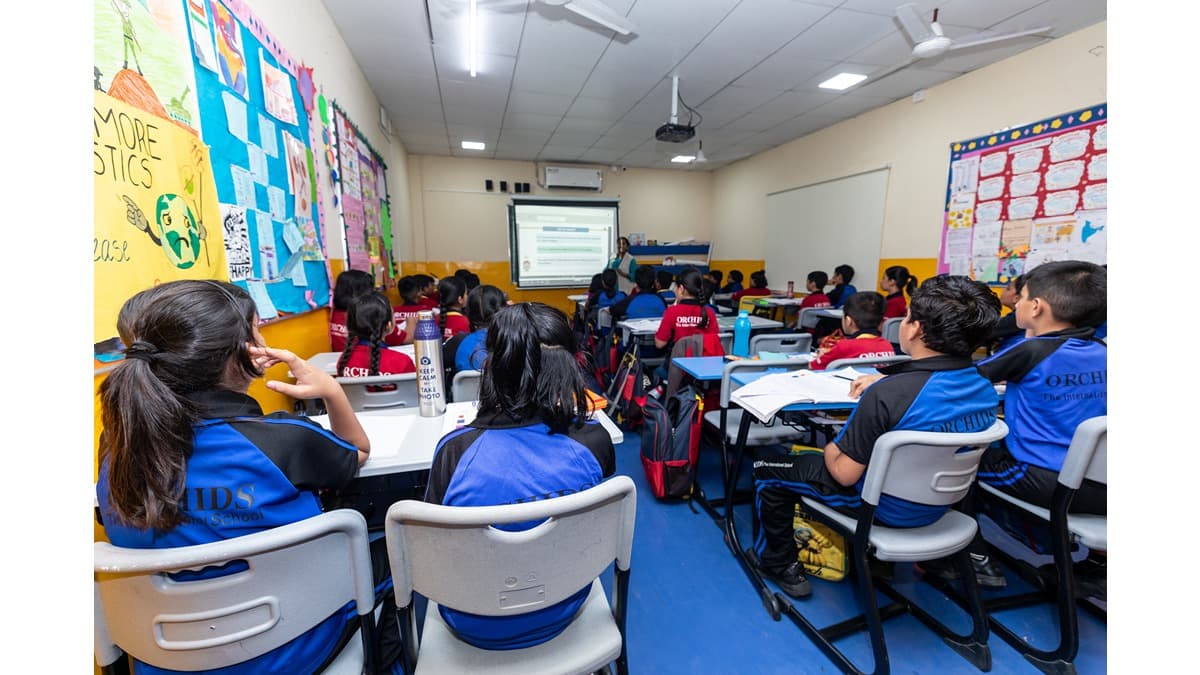Adapting Swiftly to the Digital Shift in Education
By Harshitha |
Date 05-09-2023

Admissions Open for
In the ever-evolving landscape of education, a seismic shift has been underway, one that has propelled learning into the digital realm. This paradigmatic transition has been accelerated by the rapid advancement of technology, reshaping the way knowledge is imparted and absorbed. With a burgeoning population and a diverse range of learning needs, India is at the forefront of embracing this digital transformation, redefining the contours of education for the 21st century.
The digital shift in education brings forth a plethora of opportunities and challenges. At its core, it enables a democratization of knowledge, breaking down barriers that once hindered access. Students from remote corners of the country now have the world’s information at their fingertips, bridging the gap between urban and rural learning. Online platforms offer courses on diverse subjects, catering to varied interests and skill sets, nurturing a generation of learners who are not just academically competent but also well-rounded individuals.
However, this shift necessitates an adeptness with technology that demands attention. Both educators and students need to cultivate digital literacy skills, enabling them to navigate the digital landscape effectively. The digital divide, though narrowing, still persists, posing a challenge in ensuring equal access to quality education. Policymakers and institutions must work collaboratively to provide infrastructure and resources to underserved communities, ensuring that no one is left behind in this digital revolution.
While virtual classrooms and e-learning modules have become the norm, the value of in-person interactions cannot be understated. The holistic development of a student is nurtured through physical classrooms, where social skills, emotional intelligence, and interpersonal relationships flourish. Striking a balance between digital and traditional modes of education is imperative to create a well-rounded educational experience that prepares students not only for academic success but also for life beyond the classroom.
In conclusion, the digital shift in education is a transformative journey that India is embracing with fervor. The blend of technology and traditional pedagogy has the potential to revolutionize learning, making it more accessible, engaging, and personalized. As we navigate this uncharted territory, it is essential to ensure that the benefits of the digital era are harnessed while upholding the core values of education. Adapting swiftly to this digital shift, India stands poised to shape a future where learning knows no bounds, empowering generations to come.
Other Related Sections
NCERT Solutions | Sample Papers | CBSE SYLLABUS| Calculators | Converters | Stories For Kids | Poems for Kids| Learning Concepts | Practice Worksheets | Formulas | Blogs | Parent Resource
CBSE Schools In Popular Cities
- CBSE Schools in Bangalore
- CBSE Schools in Mumbai
- CBSE Schools in Pune
- CBSE Schools in Hyderabad
- CBSE Schools in Chennai
- CBSE Schools in Gurgaon
- CBSE Schools in Kolkata
- CBSE Schools in Indore
- CBSE Schools in Sonipat
- CBSE Schools in Delhi
- CBSE Schools in Rohtak
- CBSE Schools in Bhopal
- CBSE Schools in Aurangabad
- CBSE Schools in Jabalpur
- CBSE Schools in Jaipur
- CBSE Schools in Jodhpur
- CBSE Schools in Nagpur
- CBSE Schools in Ahmednagar
- CBSE School In Tumkur

Call Us to know more about Orchids
Swipe Up



.jpg&w=1920&q=80)












